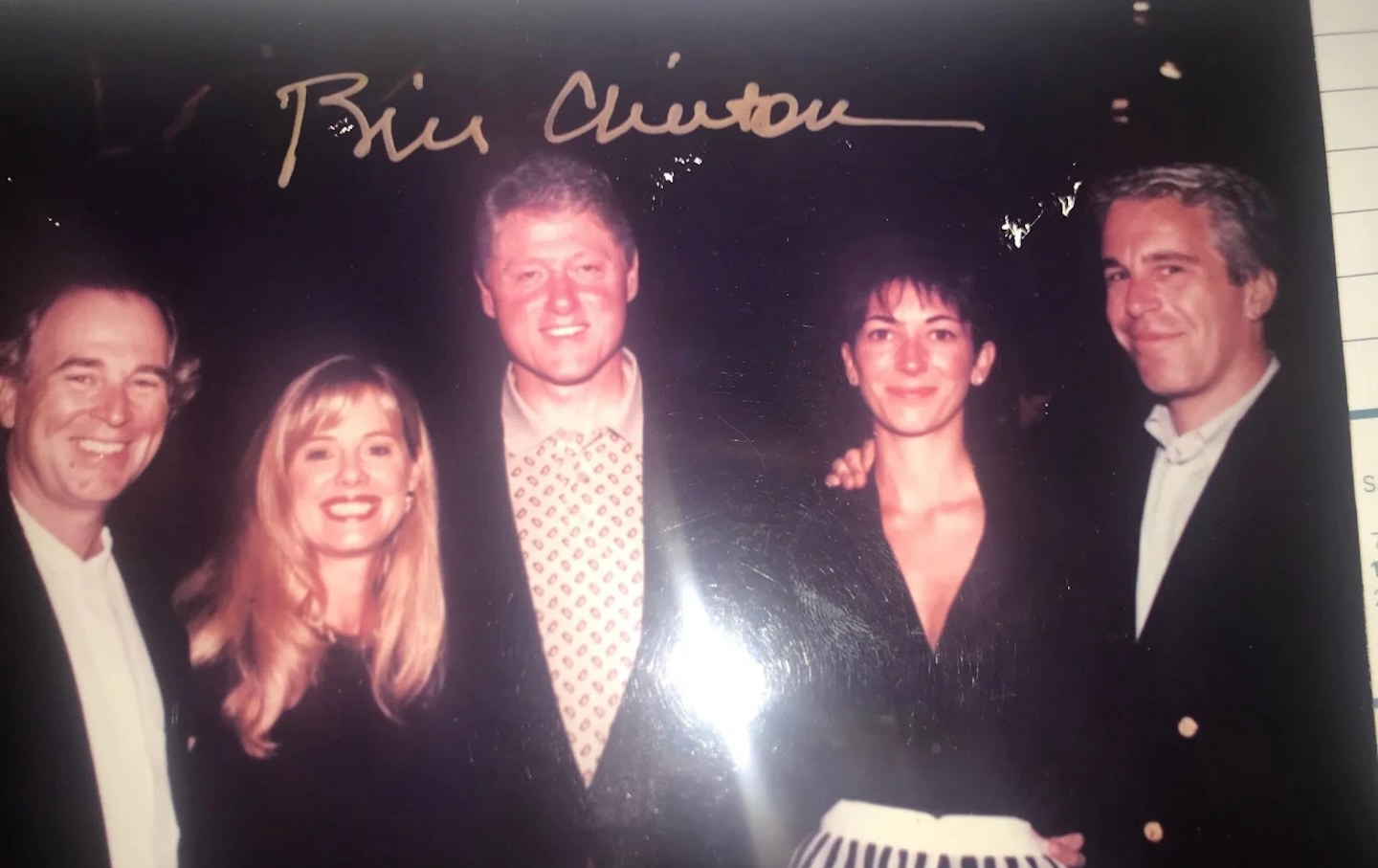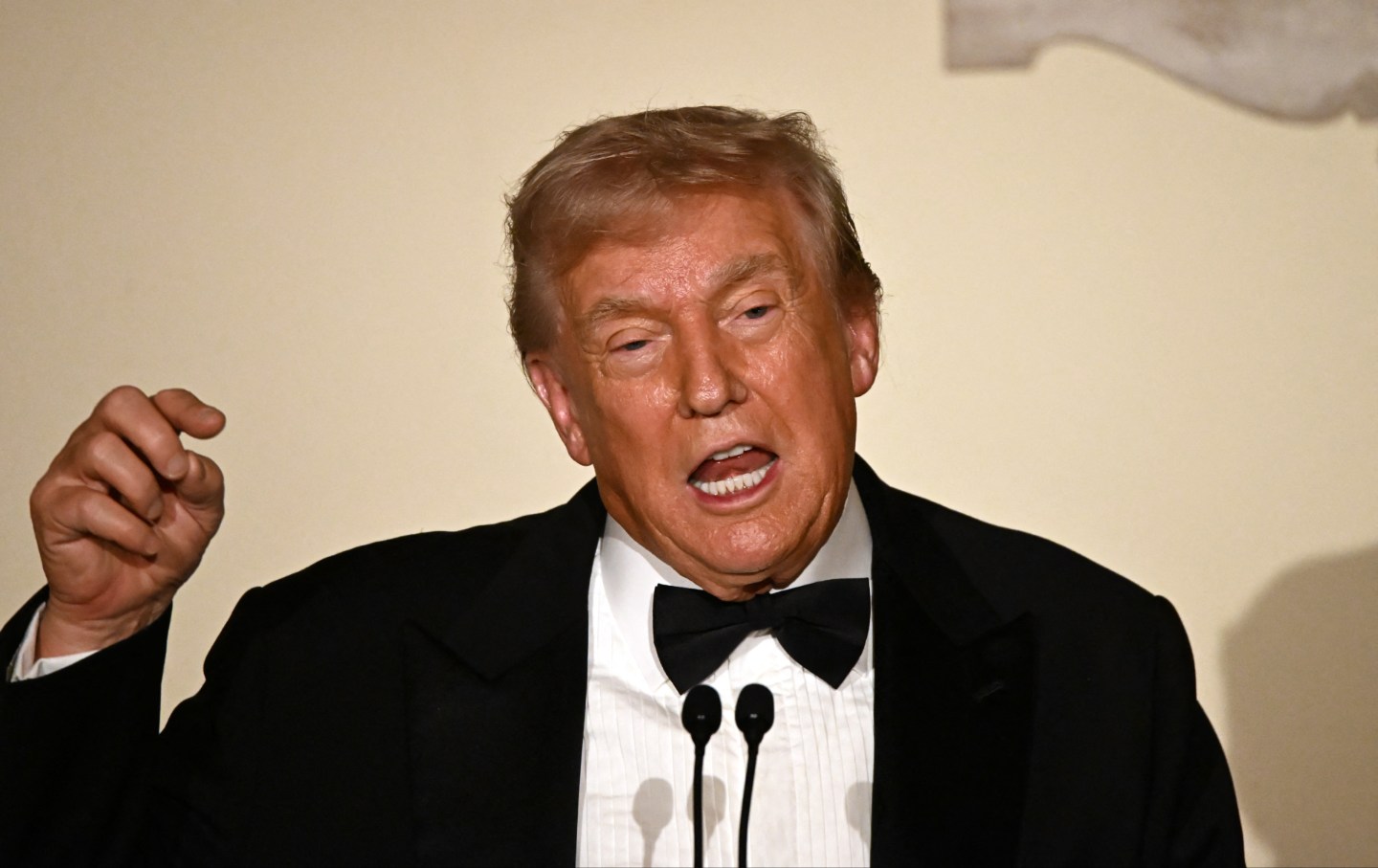
Here's where to find podcasts from The Nation. Political talk without the boring parts, featuring the writers, activists and artists who shape the news, from a progressive perspective.
When most people talk about expanding the Supreme Court, they're talking about adding a few justices. Two or four to the bench. But I am not most people. I do not think we should add a few justices to get into an endless tit for tat. With Mitch McConnell and his federal Society forces, I think we should add 20 justices.
On this episode of Contempt of Court, we explain why.
Our Sponsors:
* Check out Avocado Green Mattress: https://avocadogreenmattress.com
Advertising Inquiries: https://redcircle.com/brands
Privacy & Opt-Out: https://redcircle.com/privacy
When most people talk about expanding the Supreme Court, they’re talking about adding a few justices. Two or four to the bench. But I am not most people. I do not think we should add a few justices to get into an endless tit for tat. With Mitch McConnell and his Federalist Society forces, I think we should add 20 justices.
On this episode of Contempt of Court, I explain why.
[00:00:00] Elie Mystal: When most people talk about expanding the Supreme Court, they’re talking about adding a few justices. Two or four to the bench. But I am not most people. I do not think we should add a few justices to get into an endless tit for tat. With Mitch McConnell and his federal Society forces, I think we should blow the lid, clear off this incremental, institutionalized motherfucker, and add 20 justices.
[00:00:31] Welcome to contempt of court. I am your host, Elie Mystal justice correspondent for the nation. Today, I’d like to tell you about my court expansion plan and explain why adding many justices instead of fewer justices is actually a better reform, fixes more underlying problems with the court, and works out to be less partisan or political than some of the more incremental plans out there.
[00:01:00] Let’s start with the basics. Expanding the number of justices on the Supreme Court can be done with a simple act of Congress passed by the Senate and signed by the president. Court. Expansion does not become easier or harder based on the number of justices you seek to add to the court. From a civics perspective, the process to add two justices to the court is just the same as the process to add 20.
[00:01:27] Arguably, the rationale is the same too. The current plan supported by some Democrats is to add four justices to the Supreme Court. Their arguments are that the court has gotten woefully out of step with the American people and the elected branches of government, which is true. They argue that the country is a lot bigger now than it was in 1869 when Congress set the number of Supreme Court justices at nine.
[00:01:53] Which is also true. Basically, all of these arguments flow together into the catchphrase. We have 13 circuit courts of appeal, and so we should have 13 justices. See, back in the day, each Supreme Court justice was responsible for one lower circuit court of appeal. Procedurally appeals from the lower circuits are heard first by the justice responsible for that circuit.
[00:02:24] Now we have 13 lower circuit courts of appeal, meaning some justices have to oversee more than one. If we expanded the court to 13 justices, we’d get back to a one-to-one ratio for Supreme Court Justice per Circuit. Court of Appeal. It doesn’t actually matter how many circuits each Justice presides over because all the justices do is move an appeal from the lower court to the Supreme Court for the full court to consider whether to hear the appeal.
[00:02:57] Their function is purely clerical. It doesn’t matter. One, justice could oversee all 13 circuits while the other eight went fishing. Kind of like hazing, a rookie on a team. I don’t wanna make a damns bit of difference in terms of the number of cases the Supreme Court hears. It’s just a question of who has to work on Saturdays.
[00:03:19] Indeed, I’m not even sure that I want the court to hear more cases. These people are unelected and as we’ll discuss in future episodes, these people already have too much power. More cases, just gives them more opportunities to screw things up. I don’t need the court to make more decisions. I need the court to make fewer shitty decisions.
[00:03:44] And for that I need to reform how the court makes those decisions. And for that, I need more people and I need those people to make their decisions in panels. Those lower courts, those 13 circuit courts of appeal, almost all of them operate with more than nine judges. The ninth Circuit Court of Appeals has wait for it, 29 judges.
[00:04:11] All the lower courts use what’s called a panel system when they catch a case. Three judges are chosen at random from all the judges on the circuit to hear the case. Those three judges then issue a ruling. If the majority of the circuit disagrees, they can vote to rehear the case as a full circuit. The legal jargon here is called on bonk when the full circuit hears the case, but most of the time that three judge panel ruling is the final ruling on the issue with the circuit going on bonk only when they believe the three judge panel got it clearly wrong.
[00:04:57] Think about how different it would be if our Supreme Court operated on a panel system. Instead of showing up to court knowing that six conservative justices were against you, or one or two conservative justices that you invited onto your super yacht are guaranteed to hear your case. You literally wouldn’t know which justices you’d get on your panel.
[00:05:23] Even on a six three conservative court, you might draw a panel that was two to one liberals, or you might draw Roberts Kavanaugh and Barrett instead of Thomas Alito and Gorsuch, which could make a huge difference. I either way, you wouldn’t know which justices you’d get. Not only does that make a big difference in terms of the appearance of fairness, Especially in this time when some justices are openly corrupt.
[00:05:56] It makes a big difference in terms of what kinds of cases and arguments people would bring to the court without knowing which justices they’d get. Litigants and Red State Attorney Generals would have to tailor their arguments to a more center mass mainstream temperament. Instead of merely shooting their shot and hoping the arch conservatives can bully a moderate or two to vote with them.
[00:06:25] Now you can do panels with nine or 13 justices, but you pretty much have to do panels with 29 justices overloading. The court with justices would essentially force them to adopt the random assignment process used by every other court. That would be good. Sure. Litigants could always hope for en banc review where the full partisan makeup of the court could be brought to bear.
[00:06:55] But getting a majority of 29 justices to overrule a panel decision requires 15 votes. Consider that right now you only need four votes. A minority of the nine member court to get the full court to hear a case. I’m no mathlete, but I’m pretty sure that 15 is just a higher bar.
[00:07:21] That brings me to my next big point about expanding the court to 29 moderation. Most people say that they do not want the court to be too extreme to either side. Generally, I think that argument is bollock. I, in fact, do want the court to be extreme and it’s defense of voting rights, women’s rights and human rights.
[00:07:43] But maybe I’m weird. If you want the Supreme Court to be a more moderate institution, then you should want as many justices on the Supreme Court as possible. Why? Because cobbling together a 15, 14 majority on a 29 member court will often yield a more moderate decision than a five four majority on a nine member court.
[00:08:09] I’m not gonna lie, the law is complicated and judges are quirky. If you invited five judges off the street over for a barbecue, They wouldn’t be able to agree on whether hot dogs and hamburgers count as sandwiches. It’s simply easier to get five people to do something extreme than it is to get 15 people.
[00:08:31] Think about your own life. If you wanted to hike up a damn mountain, that is an activity for you and a couple of your closest friends. You’re not taking 15 people to climb a mountain that, that’s not even a hike, that’s an expedition, and you’re expecting one or two of them to be eaten by bears on the way to the top.
[00:08:52] If you’re organizing an outdoor activity for 15 people, you’re gonna go to the park and your friends will be expected to bring their own beer. Most likely adding 20 justices would moderate the conservative majority just by putting enough people and personalities in the mix that it would be harder for them to do their most destructive work.
[00:09:15] Just think about how the five worst senators, you know, or the five worst Congress people you can think of often don’t get their way. Because they can’t even convince other members of their party to go along with their nihilist conservative ride. Note I said conservative majority, the astute listener will notice that I have not said that I want to add 20 fire breathing liberal comrades who will stick it to dust cap for the rest of their lives.
[00:09:47] No, I believe the benefits of this kind of court expansion are so great. Panels and the moderation from having more justices trying to cobble together enok majority opinions that I’d be willing to split the new justices 10 and 10 with conservative choices. A 1613 conservative court would just be better than a six three conservative court, even if my guys are still in the minority.
[00:10:18] The only litmus test I’d have for this plan is that all 20 have to be objectively pro-democratic self-government. All 20 have to think the Supreme Court has too much power. You give me 20 p people who think the court should not be rulers and robes, and I’ll take my chances, however. There’s no objective reason for elected Democrats to be as nice and friendly as I am when adding 20 justices off.
[00:10:52] The top seats should be split 11 to nine because Mitch McConnell and the Republicans must be made to pay for their shenanigans. With the Merrick Garland nomination under Barack Obama, Republicans stole a seat. Democrats should take its back full stop. I will take no further questions about this From there, this is where Democrats could, I don’t know, engage in political hardball instead of being SAPs like always.
[00:11:26] You see right now Republicans are dead set against court expansion because they are winning with the court as it is. I can make all of the pro reform good government arguments under the sun, and the Republicans will ignore them because again, they’re winning right now. But if you put forward a bill to add 20 seats, the Republican incentives possibly change obstruct and the Democrats push through court expansion on their own and add 20 justices of their own choosing.
[00:12:03] And you end up with people like, well, me on the court, or Mitch McConnell could release senators to vote for the plan, and Republicans can share in the bounty. It puts a different kind of question to McConnell Join, get nine conservative justices and keep a 15, 14 conservative majority on the court. Or obstruct, create a 23 to six liberal majority on the court and trust that Republicans will take over the House, Senate and White House so they can add 20 of their own justices in the future.
[00:12:45] Note that McConnell will have to run that whole table while overcoming a super liberal Supreme Court that restores the Voting Rights Act and strikes down Republican gerrymanders. Good luck, Mitch. My plan wins either way. Either we get a 29 person court that is more moderate. We get a 29 person court that is Uber liberal, or McConnell does run the table and we end up with a 49 person court or a 69 person court.
[00:13:16] And while Republicans are in control of that bloated body, everybody understands that the court is just a political branch there to rubber stamp the acts of the president who appointed them. Perhaps then voters would start voting based on who they want to be in control of that court instead of who they want to have a beer with.
[00:13:35] The court is either fixed or neutered. It’s a win-win. I know 20 is a big number. I know we’ve all been institutionalized to believe that incremental change is the only change possible. And I know it sounds fanciful to ask for 20, when the starting offer from the establishment of the Democratic Party, the Republican Party, and President Joe Biden is zero, but like a doctor with poor bedside manner, I’m less interested in people’s feelings and more interested in fixing the problem.
[00:14:15] If you give me two justices, Four justices, I can reverse a number of conservative policies that they’ve shoved through a Supreme Court that has been illegitimately packed with Republican appointees. If you give me a few justices, I can reestablish a center left pro-democracy majority at least until those new justices die at the wrong time under the wrong president.
[00:14:40] But if you give me 20 justices, I can fix the whole fucking thing.
[00:14:46] Next week, I’ll stop talking so much and we’ll get into the most popular court reform plan out there. Term limits.
[00:14:58] Contempt of Court is an original series from the Nation with support from the New Press. The show was produced by Babette Thomas, an executive produced by Ludwig Hurtado. Our original music was made by Ellington Peet.
Disobey authoritarians, support The Nation
Over the past year you’ve read Nation writers like Elie Mystal, Kaveh Akbar, John Nichols, Joan Walsh, Bryce Covert, Dave Zirin, Jeet Heer, Michael T. Klare, Katha Pollitt, Amy Littlefield, Gregg Gonsalves, and Sasha Abramsky take on the Trump family’s corruption, set the record straight about Robert F. Kennedy Jr.’s catastrophic Make America Healthy Again movement, survey the fallout and human cost of the DOGE wrecking ball, anticipate the Supreme Court’s dangerous antidemocratic rulings, and amplify successful tactics of resistance on the streets and in Congress.
We publish these stories because when members of our communities are being abducted, household debt is climbing, and AI data centers are causing water and electricity shortages, we have a duty as journalists to do all we can to inform the public.
In 2026, our aim is to do more than ever before—but we need your support to make that happen.
Through December 31, a generous donor will match all donations up to $75,000. That means that your contribution will be doubled, dollar for dollar. If we hit the full match, we’ll be starting 2026 with $150,000 to invest in the stories that impact real people’s lives—the kinds of stories that billionaire-owned, corporate-backed outlets aren’t covering.
With your support, our team will publish major stories that the president and his allies won’t want you to read. We’ll cover the emerging military-tech industrial complex and matters of war, peace, and surveillance, as well as the affordability crisis, hunger, housing, healthcare, the environment, attacks on reproductive rights, and much more. At the same time, we’ll imagine alternatives to Trumpian rule and uplift efforts to create a better world, here and now.
While your gift has twice the impact, I’m asking you to support The Nation with a donation today. You’ll empower the journalists, editors, and fact-checkers best equipped to hold this authoritarian administration to account.
I hope you won’t miss this moment—donate to The Nation today.
Onward,
Katrina vanden Heuvel
Editor and publisher, The Nation






